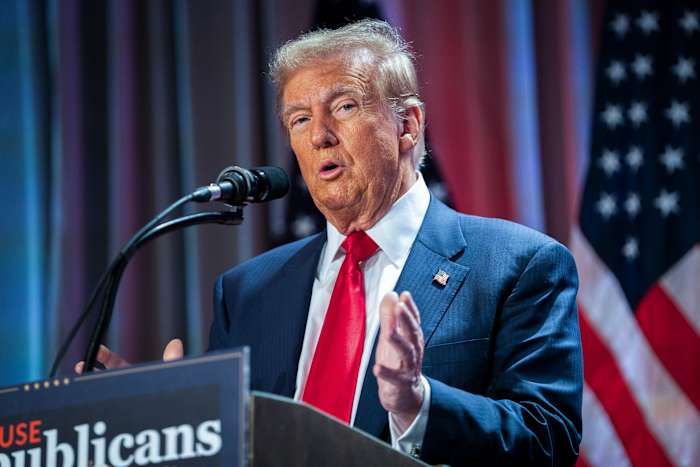In the aftermath of the recent budget deal that narrowly prevented a government shutdown, President-elect Donald Trump’s influence—or lack thereof—has become a topic of intense scrutiny. Despite his stern threats and demands, the passing of the budget lacked significant victories for Trump, particularly his aim to raise the debt limit.
Trump had advocated for specific spending cuts and, more ambitiously, sought to increase the debt limit. However, the passage of the budget revealed a different story. The president-elect faced open dissent from members of his own party, underscoring a tension between Trump’s ambitions and the legislative reality. This scenario raises questions about what Trump’s upcoming term could entail, echoing the combative nature of his first term.
The spending debate was marked by Trump’s intervention, as he sought to derail a bipartisan agreement just days before a government funding deadline. His demand to increase the debt limit was not met, signifying a limitation to his influence despite his electoral success. Trump’s shifting demands—from eliminating the debt ceiling to proposing various extensions—did not gain traction with lawmakers.
A key moment came as Trump urged fellow Republicans to cancel their bipartisan deal with Democrats. He asserted that failure to meet his terms should result in a government shutdown, and threatened primary challenges against non-compliant Republicans. Yet, 38 Republicans opposed the proposal, demonstrating their willingness to challenge Trump’s directives.
The final legislation, passed without the debt ceiling increase Trump wanted, was portrayed by some allies as a victory due to its reduced size and the exclusion of unpopular provisions like congressional pay raises. However, Trump’s silence post-vote, opting instead for a Florida golf retreat, spoke volumes.
This attempt to exert control over the congressional process parallels Trump’s previous term when a similar tactic led to the longest government shutdown in U.S. history over border wall funding. The episode now mirrors his ongoing efforts to shape his party’s legislative agenda, especially with controversial cabinet appointments looming.
The recent budget battle highlighted the challenges Trump might encounter in achieving goals such as extending 2017 tax cuts and reducing government size. Promises of upheaval resonate with a significant portion of his electorate, yet practical implementation remains complex, particularly with a narrowly divided Congress.
Remarks from Senator Kevin Cramer, noting the budget battle as a learning experience, coupled with Representative Dan Crenshaw’s observations, suggest intra-party challenges might persist. Trump’s calls for tax cuts and tariffs, while popular among supporters, face scrutiny regarding their economic impact.
Following the budget approval, President Biden acknowledged the compromise inherent in the legislation, which omitted accelerated tax relief for wealthy Americans. Such dynamics underscore the contentious policy climate Trump must navigate, affecting both the legislative process and his party.
Looking forward, Trump’s influence on future legislative endeavors, particularly fiscal policies, will likely shape political discourse. His interactions with lawmakers and reactions to policy outcomes will be pivotal, amid expectations for substantial policy shifts reminiscent of his first presidency.
The spending fight reflects broader themes that could characterize Trump’s forthcoming term—marked by its discord and his contested influence over legislative priorities. Despite maintaining a significant support base, Trump will likely face hurdles as he seeks to implement his agenda within a divided Congress.
Source: News4jax








